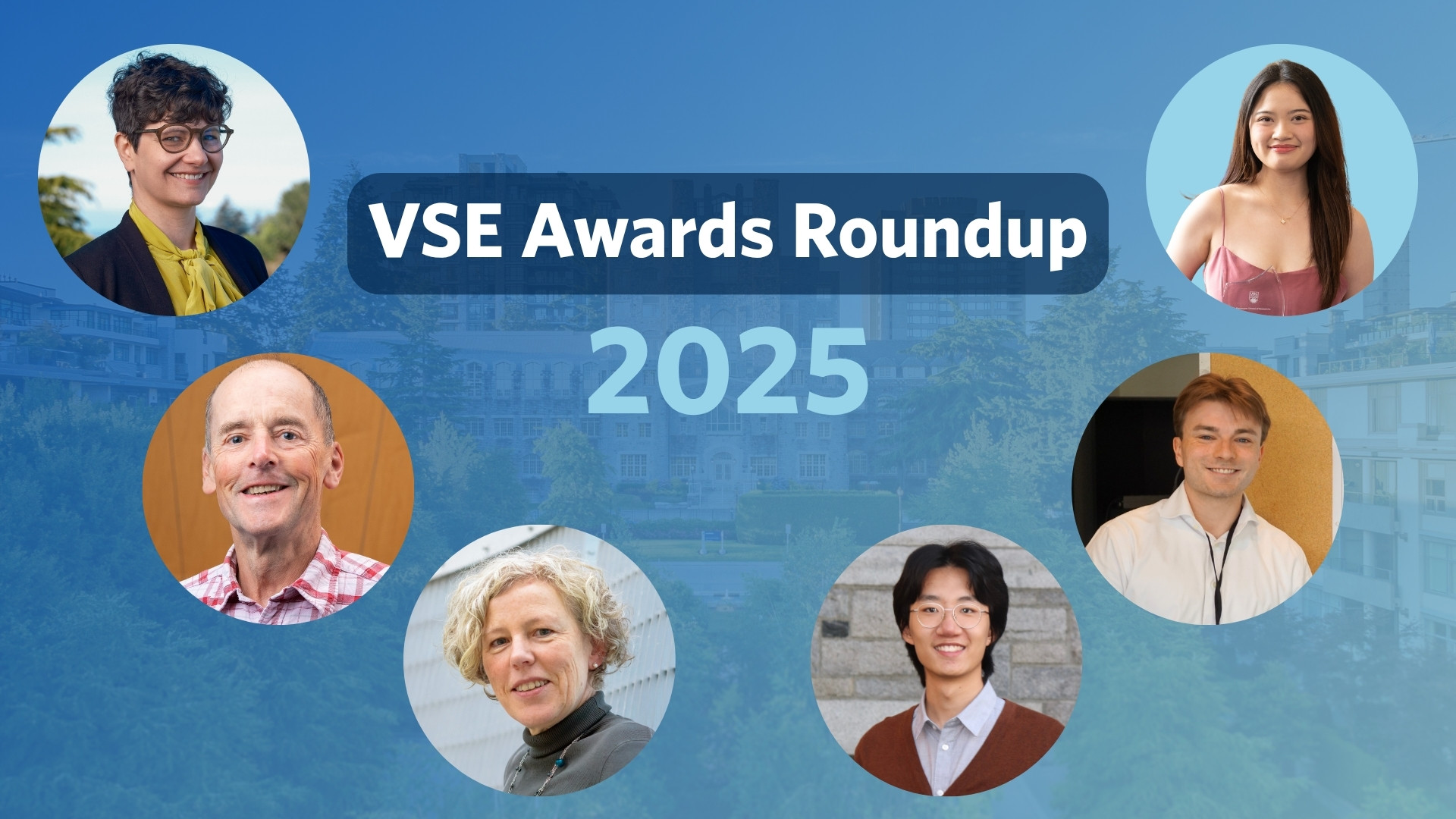

Professor Thomas Lemieux, VSE Director, at right, accepts the Insight Award from SSHRC Executive VP Ted Hewitt. Photo credit: Lipman Still Pictures
Congratulations to VSE Director Dr. Thomas Lemieux: 2014 winner of the Social Sciences and Humanities Research Council (SSHRC) Insight Award. He won the award for his work studying labour markets and wage inequality.
The Insight Award recognizes outstanding achievement arising from a research project funded partially or completely by SSHRC. It is given to an individual or team whose project has resulted in significant contribution to knowledge and understanding about people, societies and the world.
“Winning this award means a lot to me,” says Dr. Lemieux.”SSHRC has been supporting me over my whole career, starting with a doctoral scholarship in the 1980s. I am honoured to be receiving the award, and pleased to see that all the funds SSHRC invested in me over the years have produced good quality research!”
Research Q&A with Thomas Lemieux
You’ve noted that despite a growing economy we are also seeing a growing gap between the rich and the poor. How do you explain this?
We’ve seen economic growth in the 21st century and growth is a good thing but we also need to think about how that wealth is distributed. My research is trying to get at specific explanations for why inequality is growing. The idea is to suggest some policy response so that the benefits of growth are more evenly distributed.
Over the last few decades, the wage gap between the more and less educated has been growing. For people who don’t have access to higher education, things are getting harder. Education inequality is a driving factor for income inequality. The best way to improve one’s labour market outcomes, earnings, and probability of finding a job is to pursue higher education. We need to make sure that students in all regions of the country have access to good quality education at all levels. The fact of the matter is the value of a degree is very large.
We hear a lot of criticisms that universities are not turning out the right graduates for the job market. How can universities graduate students who are ready for tomorrow’s job market?
Often the criticism is that the skills students gain during a university degree are too general, they aren’t specific enough for the market demands.
If you try to do detailed planning, for example if you say you need more carpenters in Vancouver, you typically seek to fill skills gaps on a short-term basis. What you need right now is very different than what you will need in 10 years. When people get their education, it isn’t for the next two to three years, it is for their lifetime. It is hard to know what type of specific skills will be highly valued down the road.
These days, anything that can be done by a sophisticated computer or machine or something that can be outsourced to India, isn’t going to be very valuable. General skills like analyzing problems, critical thinking, and writing – these are the types of skills that can be useful for a long time. So despite all the stories and anecdotes, when you look at the numbers, there is a large benefit of higher education.
From a purely financial point of view a university education is a great investment. There is compelling evidence that university-educated individuals earn much more over their careers than those who got trades training. A good university education should provides learners with critical thinking and analytical skills that will remain useful in the labour market of tomorrow. Trade schools often do an excellent job at providing specialized skills that are in high demand today, but may be less valuable in a few years down the road because of technological changes, international competition, and other labour market changes.
What is happening now with your research project that earned you this award?
The award was mostly based on research I did on the theme of inequality. I recently started a couple of new projects on this general theme, looking in particular at the role of fields of study regional economic booms and bust in changing inequality. This award will help me complete these projects.
Read the SSHRC Profile on Thomas Lemieux


